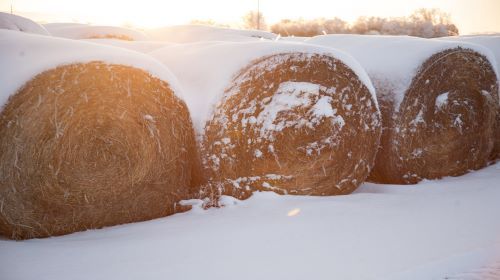
16 December 2022
The House of Lords Select Committee on Land Use in England has reported on the inquiry it launched into land use in England earlier this year. Their report calls for greater clarity around the Environmental Land Management Schemes (ELMS) and for a future land use framework that takes a multifunctional approach to the land, with multiple benefits being achieved in the same place, combining food production and environmental needs with other uses where possible. Defra Secretary, Thérèse Coffey, has confirmed that the government hopes to publish a land use framework in the first half of 2023.
52 leading organisations in food, farming and finance have joined the WWF in issuing a joint statement to Defra on the need for the Environmental Land Management Schemes (ELMS) to be enhanced. An enhanced ELMs would support farmers' work with nature, reduce input costs and allow them to build resilience to climate change. They challenge Defra to be bold and decisive with all parts of ELMs including the Sustainable Farming Incentive (SFI) and its soils standards to have higher ambitions and better delivery.
COP15 on biodiversity is still underway and is currently not progressed to a deal. It has been hoped that the COP15 in Montreal, Canada would agree new targets and actions including soil health and pesticide use. Issues around negative subsidies for fertilisers and pesticides and a global fund have slowed progress.
Sir James Bevan, CEO of the Environment Agency (EA) has stated that Natural Flood Management (NFM) must be a core part of the UK’s defence against climate change. This follows the EA’s publishing of its report evaluating its £15 million NFM programme. NFM uses natural techniques such as land and soil management to reduce the risk of flooding.
MPs on the EFRA committee in the House of Commons have launched an inquiry into soil health. The inquiry aims to investigate the importance of soil health to growing food, biodiversity and reducing carbon emissions. It currently has a call for evidence open which ends on Sunday 5th February.
Drones are being used in Scotland to survey carbon stored on farms. Through combining the drones, which carry LiDAR technology (Light Detection and Ranging) to survey above ground carbon in trees and hedges, with laboratory soil tests, it is hoped that a whole-farm picture of the carbon stored on farms can be provided.
New research has raised concerns that soil in the US is being eroded faster than it forms. Research by the University of Massachusetts has found that the soil erosion rate in the US Mid-West is 10 to 1,000 times faster than pre-agricultural erosion rates.
Climate-smart agriculture is receiving over $3 billion from the US Department for Agriculture. This funding is supporting projects using technology to lower agriculture’s climate-impact, but also supports projects encouraging regenerative practices that improves soil health like using compost and no-tillage.